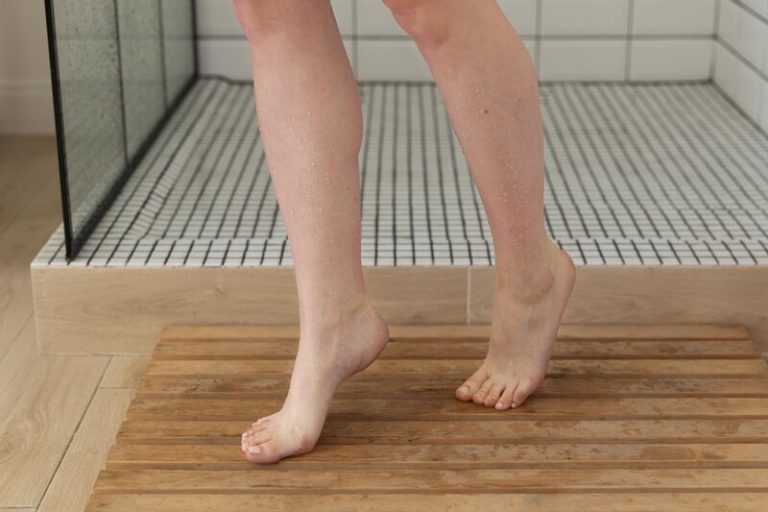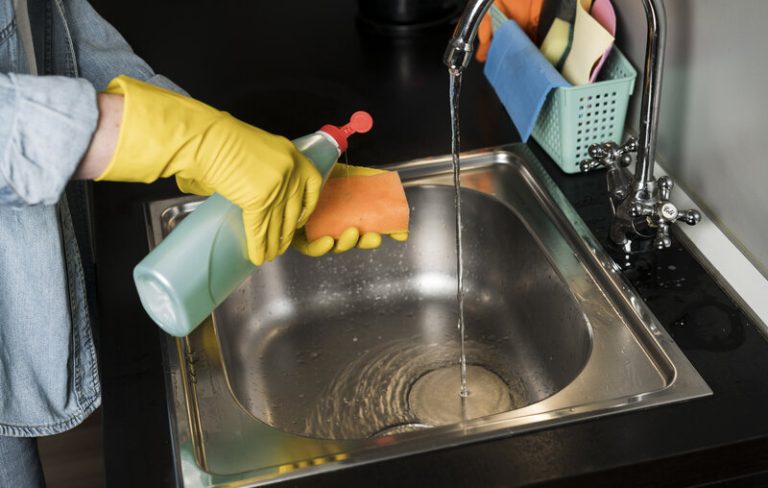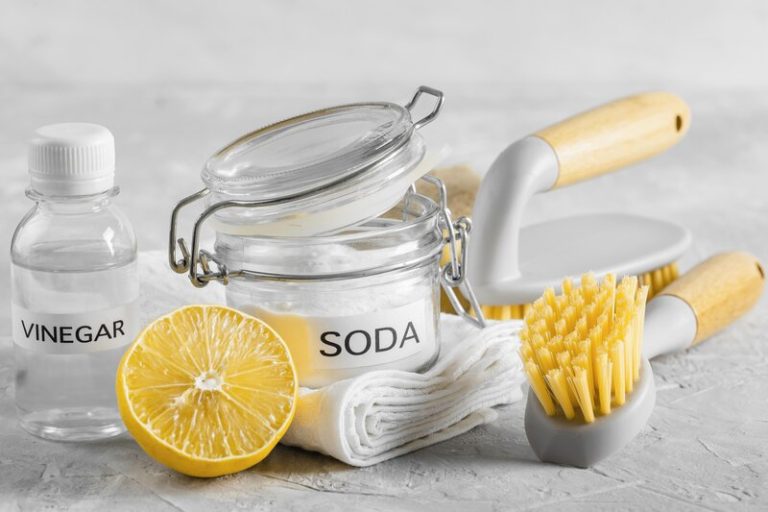If your fridge smells bad even after cleaning, you might be dealing with more than just surface-level issues. Persistent odors can sometimes linger despite your best cleaning efforts, leaving you frustrated.
The problem could stem from hidden spills, mold, or even old food particles trapped in hard-to-reach areas. Understanding why these smells persist is the first step in resolving them. Let’s tackle this stinky issue together!
Why Does My Fridge Smell Bad Even After Cleaning?
In general, the cause of fridge smells bad even after cleaning is due to several things such as:
a. Spoiled Food
Spoiled food is one of the most common causes of unpleasant odours in a fridge, leading to a distinct rotten food smell that can be difficult to eliminate.
It is crucial to regularly check the expiry dates of items in your fridge and larder to prevent the consumption of spoiled food.
Examining the appearance, texture, and smell of the food can help identify if it has gone off. Mould, unusual discolouration, and off smells are common signs of spoilage.
Proper food storage techniques, such as sealing leftovers in airtight containers, organizing food items by the expiry date, and keeping perishables at the right temperature, can significantly reduce the likelihood of encountering unpleasant odours in your kitchen.
b. Mold and Mildew Growth
Mould and mildew growth inside the fridge can produce a musty smell that lingers even after cleaning, as these fungi thrive in moist and dark environments.
Common areas where mould and mildew tend to flourish within the fridge include gaskets, vegetable and fruit drawers, as well as any spills or leftovers that may go unnoticed. To effectively clean these areas, use a mixture of water and white vinegar or baking soda, which are natural and safe options.
Regularly inspecting and cleaning these spots can prevent the build-up of mould and mildew, ensuring a healthier environment for food storage.
c. Dirty Condenser Coils
Dirty condenser coils can contribute to fridge odours by affecting the efficiency of the appliance, leading to improper cooling and the build-up of unpleasant smells.
Condenser coils play a crucial role in the refrigeration process by releasing heat from inside the refrigerator to the surrounding environment. When these coils get clogged with dust, dirt, and debris, their ability to dissipate heat diminishes, causing the fridge to work harder to maintain the set temperature.
To clean them, you can use a coil brush or a vacuum cleaner to gently remove the accumulated grime. Regular maintenance of the coils not only improves the cooling performance of the fridge but also helps prevent foul odours from developing within the appliance.
d. Stagnant Water in Drip Pan
Stagnant water in the drip tray can harbour bacteria and mould, producing foul odours that permeate the fridge.
One primary location to find the drip tray is beneath the fridge, usually around the bottom front. Cleaning the drip tray involves carefully removing it to avoid spillage and unpleasant odours that may arise from accumulated residues.
Commence by unplugging the fridge to ensure safety before proceeding. Then, gently slide out the drip tray by pulling it towards you. Dispose of any stale water cautiously, either by pouring it down a drain or using a towel to absorb it.
It’s essential to practise regular maintenance and preventive measures such as placing a small amount of bicarbonate of soda in the drip tray to absorb odours and regularly checking for any leaks or drips to ensure it doesn’t accumulate stagnant water, preventing potential bacterial growth and odour issues.
e. Bacteria Buildup
Bacteria build-up in various parts of the fridge, including seals and crevices, can cause persistent odours that aren’t eliminated with superficial cleaning.
It is crucial to undertake a deep cleaning of your fridge to tackle these hidden sources of bacteria effectively. The seals around the door are often overlooked but can harbour a significant amount of grime and mould if not cleaned regularly. Additionally, cleaning the condenser coils at the back of the fridge is essential to prevent dust build-up, which can impact the efficiency of the appliance.
How to Solve Fridge Smells Bad Even After Cleaning?
Overcoming fridge smells bad even after cleaning requires not only a quick wipe, but also with:
a. Deep Clean the Fridge
To deep clean your fridge, follow these expert tips provided by cleaning professionals from TEKA Cleaning, ensuring every nook and cranny is spotless.
Start by removing all the shelves and drawers from your fridge. Wipe them down with a mixture of warm water and a gentle detergent, ensuring to rinse them thoroughly before drying.
While the shelves and drawers are drying, use a suitable cleaner to scrub the interior of the fridge, focusing on tough stains and spills.
Next, move on to the exterior of the fridge: wipe down the doors, handles, and any exposed surfaces with a disinfectant cleaner. Don’t forget to clean the rubber door seal thoroughly, as mould and grime often accumulate in this area.
After cleaning all surfaces, go back to reassemble the shelves and drawers. Once everything is back in place, give the fridge a final wipe-down using a sanitising solution to ensure that all bacteria and germs are eliminated.
b. Remove Spoiled Food
Regularly removing spoiled food is crucial in preventing and eliminating odours, as decaying food is a primary source of fridge smells.
One way to identify spoiled food is by checking for any unusual odours emanating from it; foul or off smells are a clear sign of spoilage. Inspect the texture and appearance of food items – any discolouration, mould formation, or sliminess indicates that the food has gone bad.
Proper food rotation can also help in minimising wastage and preventing spoilage. Make sure to use the oldest items first and organise your fridge to easily spot items nearing expiry.
c. Use Natural Deodorisers
Natural deodorisers like bicarbonate of soda, coffee grounds, and lemon juice can be effective in neutralising fridge odours without the use of harsh chemicals. These natural deodorisers work by absorbing and eliminating odours rather than just masking them.
Bicarbonate of soda, for instance, is renowned for its ability to absorb and neutralise strong smells. Coffee grounds not only offer a pleasant aroma but also help in absorbing odours efficiently. Lemon juice, with its acidic properties, can cut through tough odours and leave a fresh scent in your fridge.
To maximise the benefits of these natural deodorisers, it is recommended to replace them every 2-3 months or when they lose their effectiveness. Regularly refreshing the deodorisers ensures that your fridge stays odour-free and your food remains fresh for longer.
d. Clean the Drip Pan
Cleaning the drip tray with simple tools is essential to eliminate odours caused by stagnant water and bacteria build-up.
If you notice a foul smell coming from your fridge, it could be a sign that the drip tray needs attention. Locate the drip tray, which is usually found at the bottom of the fridge behind the kick plate. Using a screwdriver, carefully remove the kick plate to access the drip tray.
Once you have removed the drip tray, empty any accumulated water and debris. Use a mixture of mild detergent and warm water to clean the tray thoroughly. Rinse the drip tray with fresh water and dry it completely before reinserting.
To prevent future odours, it is recommended to regularly check and clean the drip tray every few months.
e. Replace the Water Filter
Replacing the water filter regularly is important to prevent odours caused by contaminants and bacteria in the filter system.
Regularly changing the water filter not only ensures that your drinking water is clean and safe, but it also contributes significantly to maintaining the overall fridge hygiene. Over time, the filter can become clogged with impurities, reducing its effectiveness in purifying the water that flows through it. This can lead to a build-up of bacteria and other harmful substances, which not only impact the taste of the water but can also affect the quality of ice cubes and other beverages made using the fridge dispenser.
How to Prevent Fridge Smells Bad Even After Cleaning?
To prevent the problem of fridge smells bad even after cleaning from happening again in the future, here are some things you can do:
a. Regularly Clean and Organise the Fridge
Regularly cleaning and organising your fridge helps prevent the build-up of odours and ensures that all food items are properly stored.
Setting a cleaning schedule can make this task more manageable. Try allocating a specific day each week to tackle fridge cleaning – throw out expired items, wipe down shelves, and check for any spills or leaks. Organising food items efficiently can save you time and prevent food wastage. Use clear storage containers, label them properly, and group similar items together. For a deeper clean, consider hiring professional cleaning services periodically to sanitise hard-to-reach areas and maintain a hygienic environment for your food storage.
b. Check for Spoiled Food Regularly
Consistently checking for spoilt food and removing it promptly can significantly reduce the risk of odours in your fridge.
Regularly inspecting the contents of your fridge is crucial for maintaining food freshness and preventing unpleasant odours from spreading. When performing food checks, pay close attention to items that are nearing their expiry dates or showing signs of spoilage, such as discolouration, off smells, or unusual textures.
It’s also important to store different types of food properly to prevent contamination and premature spoilage. Ensuring your fridge is organized with properly sealed containers and following specific storage recommendations for various food items can help extend their shelf life and maintain their quality.
c. Keep the Fridge at the Right Temperature
Maintaining your fridge at the right temperature is crucial for preventing bacterial and mould growth, which can lead to odours.
For optimal food preservation, the recommended temperature range for a fridge is between 35°F to 38°F (1.6°C to 3.3°C). This level inhibits bacteria growth while keeping your perishables fresh for a longer duration. To monitor the temperature, place a thermometer in the fridge and check it regularly.
If you notice the temperature fluctuating, you may need to adjust the settings or investigate potential issues with the appliance. Keeping your fridge at the correct temperature not only prolongs the shelf life of your food but also helps prevent foul odours from developing due to bacteria multiplication.
d. Open Baking Soda Boxes in the Fridge
Placing open boxes of baking soda, or bicarbonate of soda, in the fridge can effectively absorb and neutralise odours over time.
For optimal results, it is recommended to replace the baking soda in your fridge every three months. This ensures that it remains active and continues to eliminate unwanted smells effectively.
To enhance its deodorizing capabilities, you can also add a few drops of essential oils, such as lemon or lavender, to the baking soda before placing it in the fridge. These oils not only impart a pleasant scent but also work in conjunction with the baking soda to combat odours.
Placing the baking soda in a small dish or container with ventilation holes can help improve its exposure to odours, allowing it to work more efficiently in keeping your fridge smelling fresh.
Dealing with a situation where your fridge smells bad even after cleaning requires a closer look at potential hidden issues. Often, persistent odors can be caused by spills, mold, or residues that aren’t immediately visible.
To address these hidden problems effectively and ensure your fridge is thoroughly sanitised, consider enlisting professional help. TEKA Cleaning specialises in comprehensive residential cleaning services that tackle even the most stubborn odours and hidden messes. Our team uses advanced equipment and specialised cleaning solutions to refresh your fridge and restore a pleasant environment in your kitchen.
Don’t let unseen problems compromise your kitchen’s freshness. Contact TEKA Cleaning at 01233 751 544 today to arrange a professional deep clean. With our expert services, you can ensure your fridge is not only clean but also free from any lingering smells. Act swiftly to maintain a welcoming and hygienic kitchen space!
Read also:











